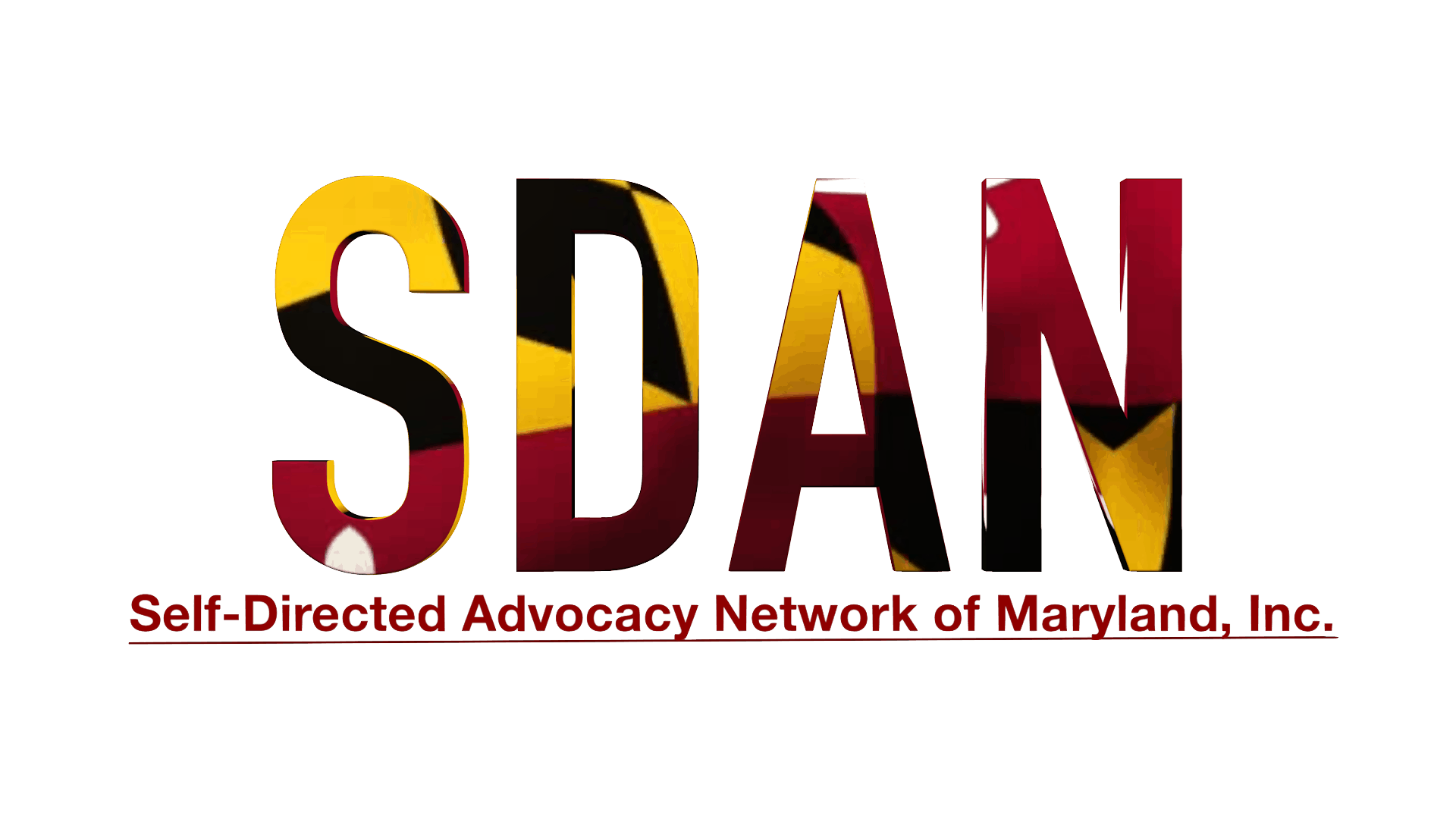1. What is Self-Direction (SD)?
Self-Direction is when a person with intellectual or developmental disabilities (I/DD) makes their own decisions about how their Developmental Disabilities Administration (DDA) funding is allocated: You select the kind of supports/services you fell will provide you with the life you want and how funds will be allocated between those services. You are in the driver’s seat. You, and the advocates you choose to help you make decisions, are the experts on designing your services and supports. Self-Direction can help you achieve the Good Life that you and your advocates all want for you.
Maryland’s DDA has three waiver programs that allow for self-direction: the Family Supports program, which is geared to people under 21; the Community Supports program which is geared to participants whose needs do not include residential supports at this time; and the SD option that falls within the Comprehensive Community Pathways Waiver.
2. What is the Good Life? And how can people with developmental disabilities have a Good Life?
The Good Life is different for everyone. It means achieving your personal goals and becoming your personal best. Even people with severe developmental disabilities can have the Good Life. For many people self-direction has been the key to obtaining the kind of life they want.
3. Who Can Self-Direct?
Anyone with I/DD can self-direct. Some people can direct their programs independently. Others may need significant supports to do so. But everyone has a way of expressing their needs and desires, which is how they are directing their programs. People with severe disabilities may use a supported decision making process, involving advocates who are dedicated to creating a program that meets the needs and wishes of the participant.
4. What’s so Great About Self-Direction?
SD participants have two special authorities that people in traditional programming do not have. They have Budget Authority and Employer Authority.
A. What is Budget Authority? Budget Authority is the ability to direct your funding according to your needs and priorities. You will ask yourself questions like these: What services do I need to achieve my personal goals? Do I want to hire a support broker to help me locate resources and generate ideas for designing my program? How much of my budget do I need to reserve for transportation? How much of my budget should I reserve for staff? Are there special services and supports, such as assistive technology, that help me achieve my goals?
B. What is Employer Authority? Typically, the most important aspect of such an individualized self-directed program is “employer authority,” which is the ability to set wage rates and to hire and fire support staff. Employer authority is vital because the quality of most programs depends on the quality of the staff members who provide needed supports
5. What Does a Self-Directed program look like?
Just as important as employer authority, is the ability to choose your own activities and set your own schedule. Because each SD program is tailored to specific needs and interests of the individual, no two programs look identical. In self-direction “one size never fits all.”
6. Is it difficult to self-direct?
Because Self-direction allows you more control of your services, it also comes with responsibilities. However you can easily access professionals who can help you with administrative details and develop a smoothly running program. The biggest challenge to self-direction is recruiting and retaining qualified staff and allowing for back-up when staff is unavailable.
7. How has self-direction enriched the lives of Marylanders with DD?
Self-direction enables Marylanders with I/DD to lead remarkable lives. For some people the switch to self-direction was life-changing. Others transitioned directly from school to an SD program—and would never consider anything else.
8. How Do I start a self-directed program?
To find out more about how to initiate a self-directed program, notify your Coordinator of Community Services (CCS), who can get the ball rolling. You may also contact SDAN, a statewide network of participants and advocates dedicated to promoting and preserving self-directed options for Marylanders. Experienced SDAN members can help you navigate the transition process. Email info@MarylandSDS.org. We look forward to helping you.
9. To See Examples of the Many Lives and Many Choices of Self-Direction, watch this VIDEO on YouTube and subscribe to our Page.
